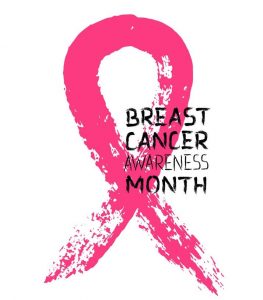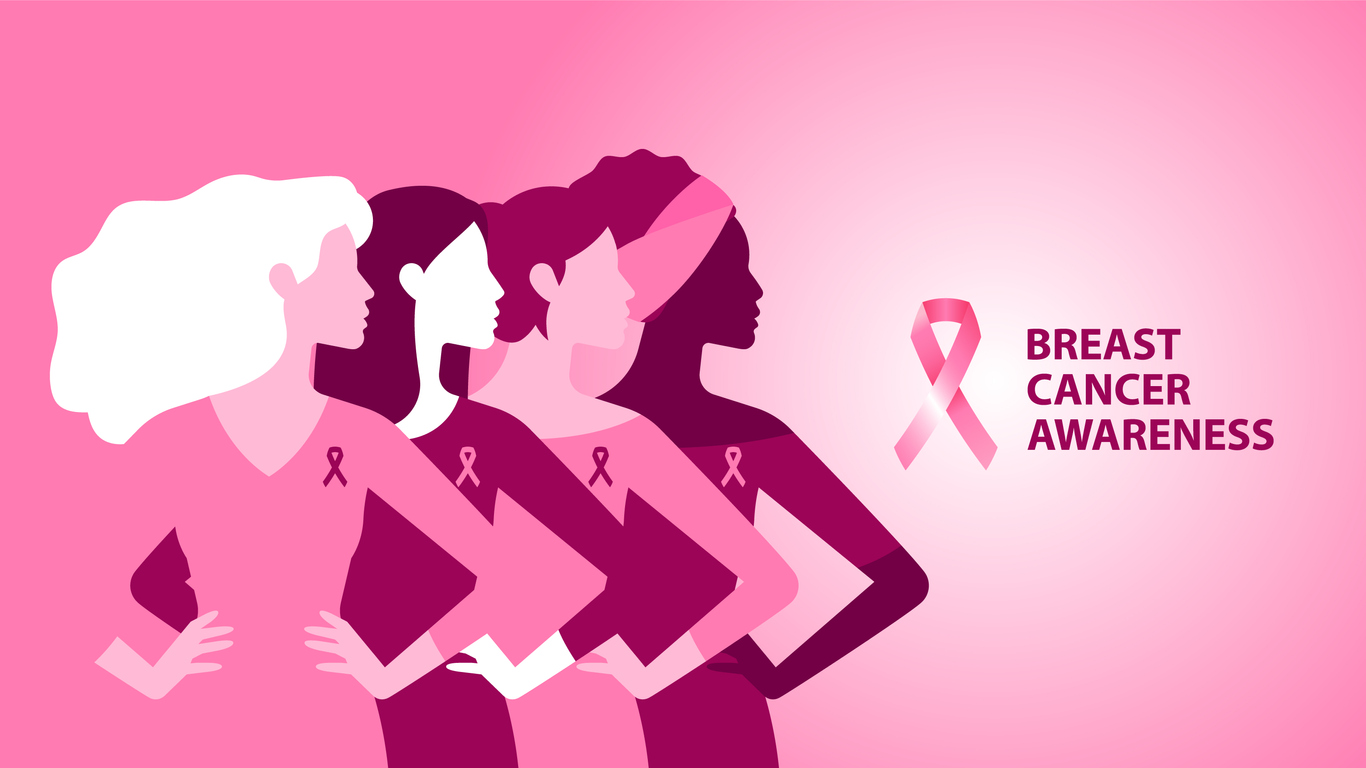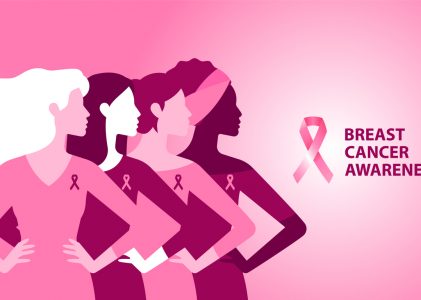Learn the Facts about Risk Factors, Screening Recommendations, Understanding your Mammogram and BI-RADS Assessment, Stages of Breast Cancer and More. 
Find Resources, Assistance and Support – You are Not Alone
The National Breast Cancer Foundation, Inc. is dedicated to educating women about how they can be proactive with their breast health. Knowledge is power, and early detection saves lives. Breast cancer begins in the cells of breast tissue which can then invade tissue surrounding the breast and metastasize (spread) to other areas of the body. You may be surprised to know that 1 in 8 women will be diagnosed with breast cancer in her lifetime.
It is estimated that 281,550 women will be newly diagnosed with invasive breast cancer in 2021 alone, along with an additional 49,290 women that will be diagnosed with non-invasive breast cancer. With early diagnosis in the localized stage, if the breast cancer has not yet metastasized, the 5-year survival rate is 99%. Early detection can help to save the lives of women everywhere and help to combat the nearly 43,600 deaths expected from breast cancer just this year.
Resources for More Information on Breast Cancer
If you or a loved one are experiencing a breast cancer diagnosis, the statistics and amount of information can seem overwhelming. Greater Waterbury Imaging Center offers these resources to help you better understand a breast cancer diagnosis along with resources for assistance and support.
Risk Factors, Signs and Symptoms
It is only natural to wonder what caused this disease if you have been affected by a breast cancer diagnosis. While there is no real one known cause for breast cancer, some women may have an increased risk with family history, being a smoker, or having changes in your BRCA1 or BRCA2, breast cancer-related genes. Learn more about breast cancer risk factors, signs, symptoms and find tools from the National Cancer Institute such as Breast Cancer Risk Assessment Tool.
Breast Cancer Screening and Breast MRI
Early detection is critically important to saving lives and for successful treatment of breast cancer. Regular screenings can detect early breast cancer while it is still confined to the breast which greatly improves a woman’s chance for survival. Mammography and Breast MRI are valuable tools to diagnose abnormalities in the breast and to assess any metastasis.
Understanding Your Mammogram and BI-RADS Assessment
A breast cancer diagnosis can be confusing with a system of reporting referred to as the BI-RADS rating, or the Breast Imaging Reporting and Data System, BI-RADS. This is a system used by physicians to categorize imaging findings based on a scale of 0 to 6:
0 – Incomplete
1 – Negative
2 – Benign (non-cancerous)
3 – Probably benign, but a follow up is suggested
4 – Suspicious abnormality, consider a biopsy
5 – Highly suspicious for malignancy, take appropriate action
6 – Known biopsy-proven malignancy, take appropriate aciton
Learn more about understanding your mammogram and the BI-RADS assessment here.
Stages and Types of Breast Cancer
There are four different stages of breast cancer, with different levels of stages within each category. Once a person receives a breast cancer diagnosis, staging is completed to determine the extent of the disease and to develop a proper treatment plan. Learn about the different stages, and sub-stages which include several sub-stages within each stage.
For example, stages 0 to 1 are divided into four additional stages depending on if the cancer is found in the breast milk duct lining without spreading, if it includes part of the nipple, and is further divided by the size of the tumor and lymph node activity.
Stage 2 is further divided into two categories 2A and 2B, depending on the size of the tumor and lymph node activity. Stage 3 indicates that the tumor has spread beyond the immediate breast region and is further divided into 3 categories of 3A, 3B and 3C. While stage 4 is considered the advanced stage where the breast cancer has metastasized to other areas of the body.
Breast Cancer Resources, Assistance and Support
There is a lot of help for women, and men, facing a breast cancer diagnosis. You are not alone and the Susan B. Komen organization offers assistance and free support from trained oncology workers. The mission of the Susan B. Komen organization is to save lives by investing in breakthrough research that will prevent and cure breast cancer and to meet the most critical needs in our communities.
Here you can find a breast cancer hotline, resources for financial assistance for treatment, and additional information and educational material.
The National Breast Cancer Foundation Offers a HOPE Kit that you can request for the brave woman in your life to give her an  expression of hope, comfort and encouragement. The HOPE kit brings a smile to the faces of the many women facing this diagnosis with comforting fuzzy socks, tea, a tumbler, lotion, lip balm and educational resources. Just knowing someone is thinking of you and loves you enough to provide a generous gift to make you more comfortable can make all the difference in the world to someone feeling alone with this diagnosis.
expression of hope, comfort and encouragement. The HOPE kit brings a smile to the faces of the many women facing this diagnosis with comforting fuzzy socks, tea, a tumbler, lotion, lip balm and educational resources. Just knowing someone is thinking of you and loves you enough to provide a generous gift to make you more comfortable can make all the difference in the world to someone feeling alone with this diagnosis.
You are not alone, and our goal is that no one battling this disease will ever feel alone. Find more resources and educational guides for breast cancer awareness at the National Breast Cancer Foundation, Educational Guides.
Greater Waterbury Imaging Center cares about your health and wellness, and urges you to get your regular breast cancer screenings. Speak to your physician about any risk factors and symptoms you may have as early detection saves lives. Remember you are not alone and contact GWIC for all your breast MR imaging needs.


